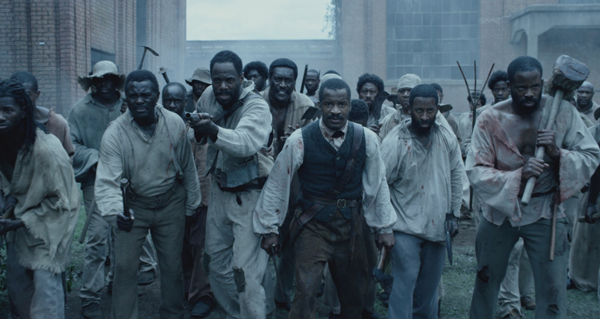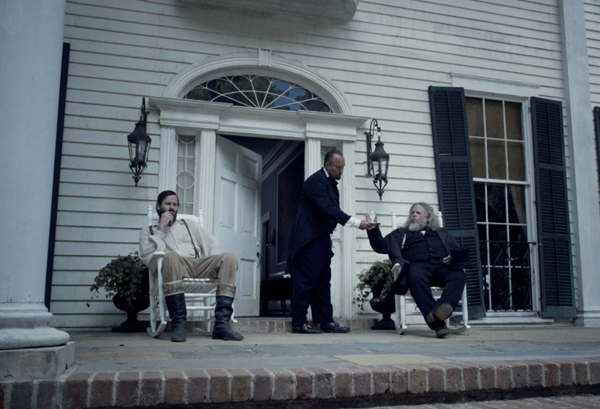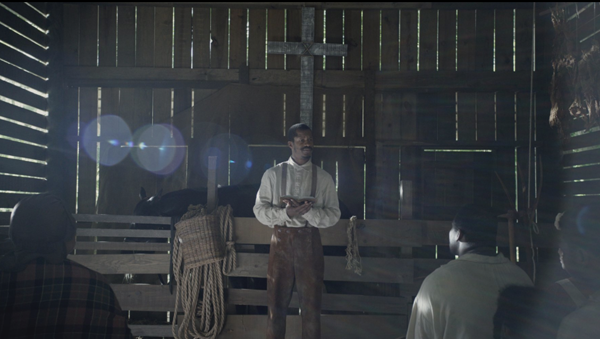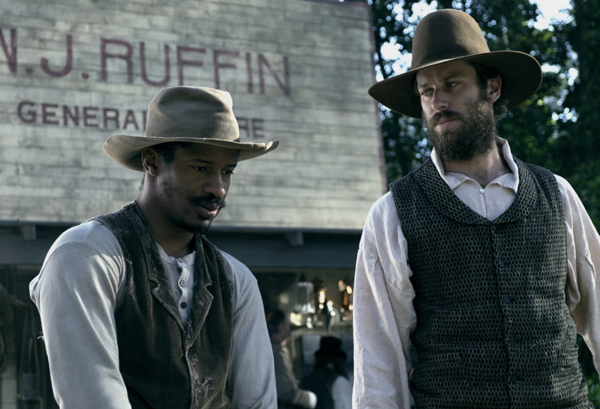
The Birth of a Nation is heavy-handed and overbearing, but I actually found its display of slavery to be more powerful than Steve McQueen’s 12 Years a Slave. I think the primary reason for this (for the most part) is that the whites in this film are not all simply terrible for being terrible. You see a character like Samuel Turner (Armie Hammer) try and justify his treatment of his slaves, and you witness his descent into oblivion (and his ultimate demise) as he sells pieces of his soul, demeaning his slaves. It also makes the scenes at awful plantations that much more powerful. There’s a force-feeding scene in this film that was extremely hard to watch, and must have been equally difficult to execute, but it is a powerful scene. There is an unfortunately shallow character in Jackie Earle Haley’s slave catcher, who exists solely to die at the hands of our hero during the uprising; other than that, I thought this film did an extremely good job of showing us slavery in the South.
Now of course, the main highlight of this film is the evolution of Nat Turner (Nate Parker) into the leader of the famous slave uprising of 1831. The crew did a good job here, but it’s certainly far from perfect. Once Samuel Turner starts taking Nat around to various plantations to preach the gospel, you can see Nat’s constant internal battle with which Bible verses he should be preaching to the crowd. Should he preach civility and obedience, or revolution and violence? His sermons became more emotional and extreme as the film progresses, but by the end as Nat is trying to justify the uprising. I think this was one of the other missteps of the film. Right up to the beginning of the uprising, Parker portrays Nat Turner as completely virtuous, even as he begins contemplating murdering his master and many other whites. That said, I still found myself moved as the uprising took place, and even though the final confrontation was a little clichéd, it still summoned goosebumps.
The final thing I have to mention, (and I think a major reason for goosebumps in the final confrontation) was the score. This film brought us back to the old days of cinema, featuring an emotionally moving score from Henry Jackman, one of the better composers of recent years. While the effect of his recent scores has been minimized in the current era of cinema, which undervalues the score of a film as nothing more than background music, Nate Parker was smart enough to feature Jackman’s resounding and emotional score, easily my favorite film score this year.
At the end of the day, I think The Birth of a Nation is a worthwhile film. It tells a story of one of the most overlooked events of pre-Civil War slavery, and it tells it well. Yes, there are problems, but this is still a good—almost great—film, and one that is definitely worth showing in American History classrooms. Check it out.
















